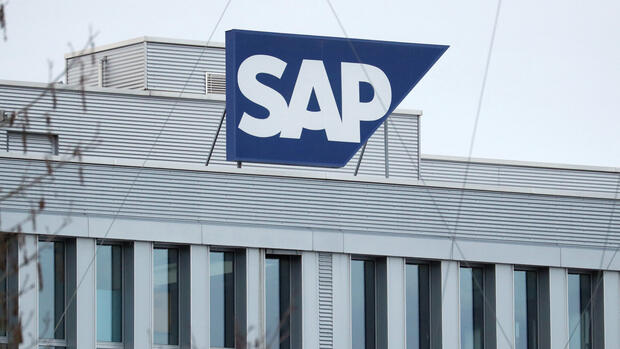In April, SAP lowered its targets in response to the sale of US data analytics subsidiary Qualtrics.
(Photo: Reuters)
Dusseldorf With the integration of artificial intelligence (AI) into its products, SAP wants to accelerate profit growth. Customers are willing to pay surcharges of up to 30 percent, said Christian Klein, head of the Walldorf group, on Thursday. “Customers see immense added value. This will lead to an increase in bookings and revenue.”
He announced the presentation of further AI functions for the various software offers for autumn. However, SAP was somewhat more cautious about cloud sales in the current year.
Klein had previously identified AI technology as a growth driver. Therefore, the company recently invested for an undisclosed sum in the startups Aleph Alpha, Cohere and Anthropic, which are developing so-called generative AI in the style of ChatGPT. “We have reached a turning point where generative AI will fundamentally change the way companies do business,” said Sebastian Steinhäuser, who is responsible for corporate strategy at SAP, in connection with these investments.
However, the figures for the past quarter paint a mixed picture. Group sales and cloud revenues fell short of expectations at around EUR 7.6 billion and EUR 3.3 billion respectively. The reason for this are delays in some deals, said company boss Klein. Adjusted operating profit, on the other hand, exceeded the Visible Alpha analyst forecasts published by the company at around 2.1 billion euros.
On this basis, Europe’s largest software house slightly increased its target for the full year for the operating result to 8.65 to 8.95 billion euros. In cloud sales, however, it lowered the top end of its target range to €14.2 billion from €14.4 billion. The lower end remained at 14 billion euros. This did not go down well on the stock market. SAP shares fell 2.7 percent in late trading in Frankfurt. The stocks listed in the USA even slipped by more than four percent.
Because of the geopolitical crises, some of the customers from the public sector are again relying more on classic software products, explained Klein. However, nothing will change in the long-term trend towards the cloud. In addition, the new AI functions are only available for cloud customers.
With agency material.
More: SAP loses touch with Salesforce
